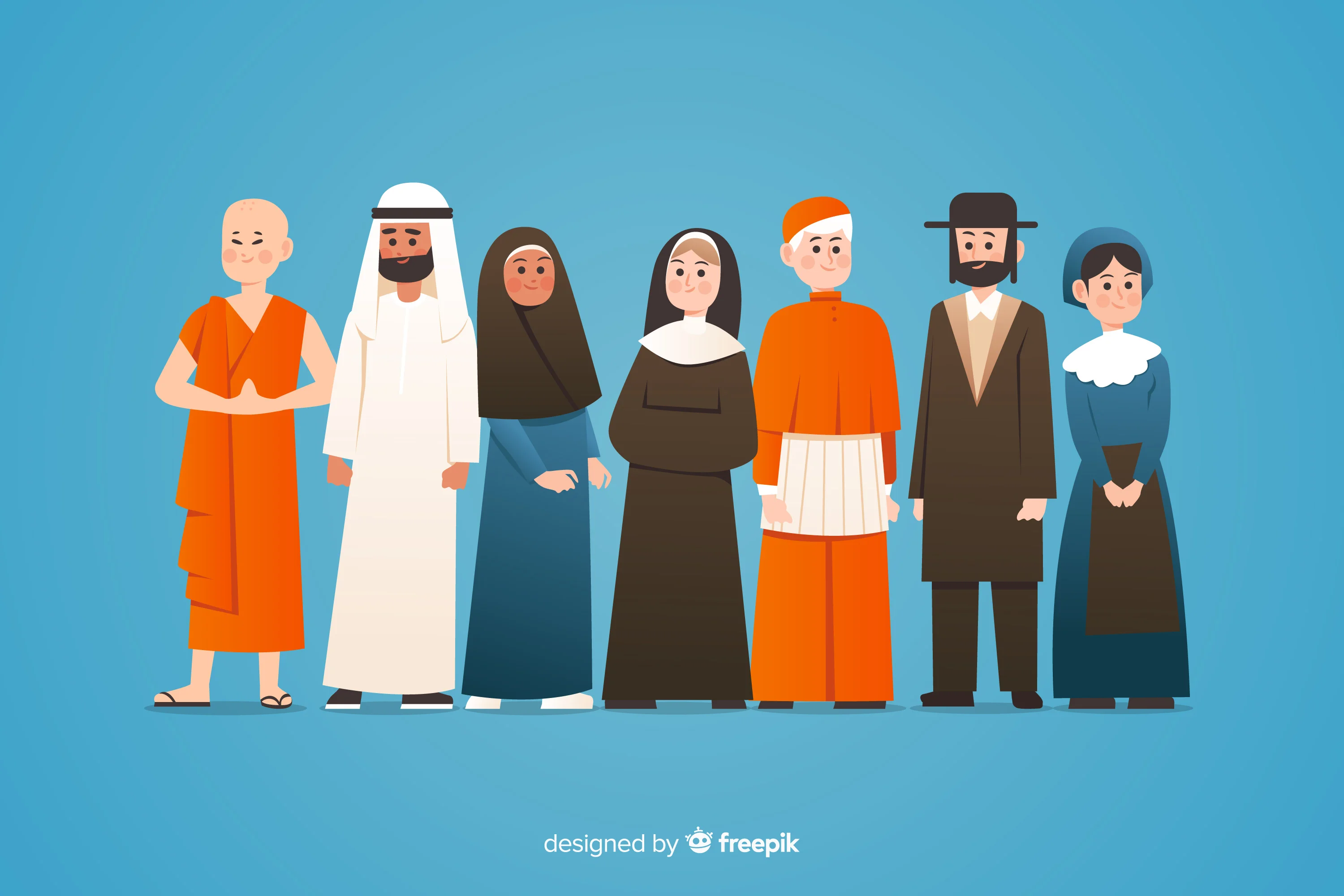Blog » A Modern View on Religious and Cultural Cremation Perspectives

Cremation practices have evolved, offering a modern view on religious and cultural perspectives while respecting diverse beliefs and traditions. As societies grow more interconnected, cremation is gaining wider acceptance across various faiths and cultures. Whether chosen for religious, cultural, or environmental reasons, cremation is increasingly viewed as a meaningful option that aligns with both personal and spiritual values. Families making end-of-life decisions must understand how cremation fits into different belief systems and what this means for honoring loved ones.
The Historical Context of Cremation
Cremation has roots dating back millennia. Ancient civilizations like Greece, Rome, and India practiced cremation for both practical and spiritual reasons. Initially, societies used cremation where land for burials was scarce or during times of war when handling bodies quickly became necessary. Over time, cremation grew into a significant ritual that reflected cultural beliefs about the body and soul.
However, it was not universally accepted. In many societies influenced by Christianity and Islam, burial became the dominant practice due to religious doctrines concerning resurrection. As modernization spread and burial spaces became limited, cremation emerged as a practical and spiritual solution.
- Ancient Greece and Rome favored cremation for soldiers and nobility.
- Hindu and Buddhist traditions in India normalized cremation.
- Abrahamic religions resisted cremation due to beliefs about bodily resurrection.
- Modern cremation accommodates both cultural needs and environmental considerations.
- Increasing burial costs and urbanization have made cremation a practical alternative for many families.
Today, cremation continues to evolve, with its history influencing current views on death and burial.
Religious Perspectives on Cremation
Religious views on cremation differ greatly, reflecting theological beliefs about the body, soul, and afterlife. As societies modernize, some faiths have begun to reconsider their views on cremation.
Christianity and Cremation
Christianity’s stance on cremation has changed significantly in recent years. Initially, the Catholic Church opposed cremation, favoring burial as a symbol of awaiting resurrection. Today, the Church allows cremation as long as the individual does not choose it to deny Christian beliefs. Protestant denominations have been more flexible, with cremation now widely accepted.
- The Catholic Church allows cremation as long as the remains are not scattered.
- Protestant churches view cremation as a practical and acceptable choice.
- Theological concerns about resurrection have lessened over time.
- Many Christians now choose cremation for its simplicity and environmental benefits.
- Some churches have adapted by offering blessings and ceremonies for cremated remains.
Judaism and Cremation
Judaism has a complex relationship with cremation. Orthodox Judaism prohibits it, seeing cremation as a violation of the body's sanctity. However, more liberal branches like Reform and Conservative Judaism have gradually accepted cremation as a valid end-of-life option.
- Orthodox Judaism continues to prohibit cremation.
- Reform and Conservative Judaism now accept cremation as a personal choice.
- Jewish funeral services in some regions offer cremation as an option.
- Cremation is more common among Jewish communities outside of Israel.
- Families balance tradition and modern considerations when choosing cremation.
Islam and Cremation
Islam strictly forbids cremation. Islamic funeral rites emphasize preserving the body as a trust from God, and cremation would desecrate that trust. For Muslims, burial remains the only acceptable method of laying the deceased to rest.
- Cremation is prohibited in all branches of Islam.
- Burial is accompanied by prayers and rites to honor the deceased.
- Rare exceptions occur, but these are highly uncommon.
- Muslim communities, even in the West, maintain traditional burial practices.
- Respect for the body in Islamic tradition remains central to its views on death.
Hinduism and Cremation
Hinduism fully embraces cremation. In Hindu beliefs, the body serves as a temporary vessel for the soul, and cremation frees the soul to continue its journey. Fire purifies the body and aids in the transition toward rebirth.
- Cremation is nearly universal in Hindu practices.
- Cremation is accompanied by prayers to release the soul.
- Families often scatter ashes in sacred rivers like the Ganges.
- The ritual ensures that the soul breaks free from the cycle of rebirth, known as samsara.
- Cremation in Hinduism aligns with deep spiritual beliefs about life, death, and the afterlife.
Buddhism and Cremation
Buddhism, like Hinduism, supports cremation as part of its spiritual practices. In Buddhist traditions, cremation helps return the body to its natural elements, aligning with the belief in samsara and detachment from the material world.
- Cremation reflects the Buddhist view of impermanence.
- Ceremonies help the soul transition through samsara, the cycle of rebirth.
- Japanese and other Buddhist cultures integrate cremation into daily religious life.
- Monks often lead the cremation ceremonies, offering prayers for the deceased.
- Cremation encourages reflection on life’s impermanence and spiritual growth.
Other Religious Views on Cremation
Several other religious groups and indigenous cultures have unique views on cremation. Some African traditions, for example, believe cremation helps the soul move on. On the other hand, Orthodox Christianity continues to resist cremation, maintaining its belief in bodily resurrection.
- Indigenous traditions view cremation as a way to reunite the body with nature.
- Orthodox Christianity still opposes cremation due to resurrection beliefs.
- Some Ethiopian and Eastern Orthodox communities strictly adhere to burial.
Cultural Shifts in Cremation Practices
Cultural attitudes toward cremation have shifted dramatically, particularly in Western societies. In the past, burial was the dominant practice, but cremation is becoming the preferred option due to factors like cost, environmental concerns, and practicality.
In Western societies, cremation rates have risen sharply. Burial costs have become prohibitive for many families, and limited cemetery space has driven more people to consider cremation.
- Cremation rates have surpassed burial in many U.S. states.
- Cremation is considered more environmentally sustainable than traditional burial.
- Modern funerals often blend cremation with personalized memorials.
- Families can scatter ashes in significant locations, adding personal meaning.
- Cremation is cost-effective, making it an attractive option for families.
In Eastern societies, cremation has long been the norm. Japan and China, for instance, have maintained high cremation rates, driven by spiritual beliefs and practical considerations.
- Japan maintains one of the highest cremation rates globally.
- Cremation in China reflects both cultural tradition and population needs.
- Eastern societies often incorporate ancestral worship into cremation rituals.
- Cremation in Asia promotes harmony between the living and the dead.
- Rituals for cremated remains maintain strong ties to spiritual beliefs.
Secular views on cremation have also contributed to its rise. As society becomes less religious, many people now choose cremation for practical reasons.
- Secular individuals see cremation as a straightforward option.
- Cremation aligns with environmentally friendly principles, particularly in urban areas.
- Cremation allows more flexibility in memorializing loved ones without strict religious guidelines.
The Environmental Perspective: Cremation and Sustainability
Cremation’s popularity also stems from environmental concerns. Traditional burial requires large amounts of land, chemicals, and non-biodegradable materials. Cremation, in contrast, uses less land and fewer resources.
However, cremation does have environmental costs. Cremation uses a significant amount of energy and emits carbon dioxide. Alternatives, such as water cremation (alkaline hydrolysis), offer more sustainable solutions by reducing energy consumption and emissions.
- Cremation requires less land than traditional burials.
- Water cremation offers an eco-friendly alternative to traditional methods.
- Some crematoriums now use technology to reduce emissions.
- Biodegradable urns help families reduce their environmental impact.
- Cremation fits within broader discussions about green burial practices.
How Cremation Services Can Respect Religious and Cultural Traditions
Cremation services, like those offered by SimpleCremation, must respect the religious and cultural needs of clients. Providers can accommodate diverse traditions, ensuring that families honor their loved ones according to their beliefs.
Service providers can tailor cremation offerings to incorporate religious rituals, prayers, and customs. They can also guide families in respectfully handling ashes and organizing post-cremation ceremonies.
- Cremation providers can integrate religious rites into their services.
- Families receive guidance on handling cremains respectfully.
- Simple Cremation ensures services meet diverse religious and cultural needs.
- Providers offer culturally sensitive advice on memorialization.
- Cremation businesses accommodate traditions while maintaining respect for beliefs.
A Unified Perspective on Cremation
Cremation has become more than just an alternative to burial. It offers a meaningful way to honor diverse religious, cultural, and environmental beliefs. As attitudes continue to evolve, cremation provides families with the flexibility to respect traditions while adapting to modern needs. Whether chosen for spiritual, practical, or personal reasons, cremation allows loved ones to be memorialized in a way that honors their beliefs.
Recent Blog Posts
- Why Direct Cremation Is Becoming America’s Preferred Choice
- Cremation Costs Explained: What Families Should Expect in 2026
- Alkaline Hydrolysis vs Green Burials: Which Option Fits You?
- Honoring Dad: The Rising Trend of Memorial Tattoos
- How to Help a Grieving Friend from Far Away
- The Heart Behind Every Word: Why Our Families’ Stories Mean So Much
- Affordable Cremation, Meaningful Goodbyes: How to Honor Life Without Financial Strain
- More Than Mourning: A Tribute to a Life Well Lived
- Go figure! Instagram and Facebook for Cremation Services
- The History of Cremation: From Ancient Rituals to Modern Choices
